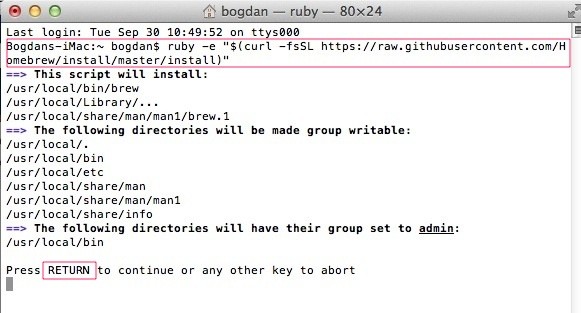
To have launchd start httpd now and restart at login: usr/local/etc/httpd/extra/nf to 8443 so that httpd can run without sudo. The default ports have been set in /usr/local/etc/httpd/nf to 8080 and in
Homebrew for mac users guide install#
Install Apache which is known as the package name ‘httpd’: brew install httpdįinal command line output should be: DocumentRoot is /usr/local/var/www. That will unload the start up daemon and make the builtin macOS Apache incapacitated, test by issuing the previous command: sudo lsof -i:80 Installing Apache with Homebrewįirst make sure you have Homebrew set up and ready to go. Stop Apache running on computer restart by issuing: sudo launchctl unload -w /System/Library/LaunchDaemons/ This tells us that indeed httpd/Apache is running, no output would mean it’s not running.


Output you may get back would be: COMMAND PID USER FD TYPE DEVICE SIZE/OFF NODE NAME You can test if Apache is running by issuing this command, which is checking Port 80: sudo lsof -i:80 or 2.4.48 Remove built-in Apache in macOS For MySQL/MariaDB you can either also install from Homebrew or as a standalone package.įirst thing to do would be to remove the builtin Apache version of which in macOS Monterey Big Sur is Apache/2.4.46. In this guide we look to add both MySQL and PHP and structure the workflow to use the User Sites folder as the document root. MacOS use to ship with both MySQL & PHP, but now since macOS Monterey, PHP has also been deprecated. Eventhough Apache ships with macOS, a better maintained version would be coming from Homebrew, also Apple is making noises about not supporting legacy software like PHP so in the future this may be more of a compulsory option.


 0 kommentar(er)
0 kommentar(er)
